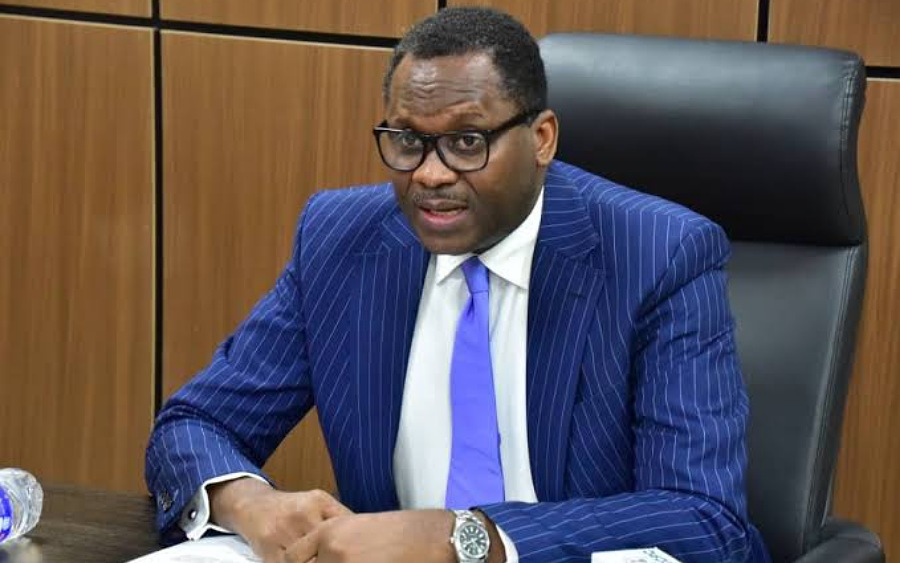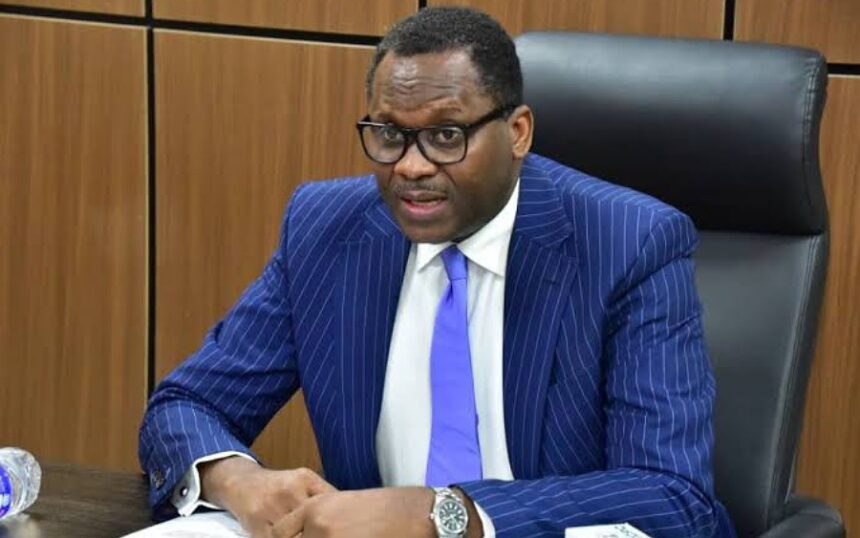The Nigerian government through the Federal Competition and Consumer Protection Commission (FCCPC) has observed that the reduction in the use of harassment and defamation of lenders by digital money lenders (DMLs), better known as loan apps, has led to an increase in defaulting by the borrowers.
Noting that the rising debt could lead to the collapse of the digital lenders that are also playing critical roles in the economy, the Commission said it would be developing a new regulatory framework to address Nigerians’ rising indebtedness to the loan apps.

The FCCPC Chief Executive Officer, Babatunde Irukera, who spoke on Monday while featuring on a TVC live programme, stated that the implementation of the Commission’s interim framework has led to about 80 per cent reduction in harassment and defamatory messages from loan apps.
While noting that the Commission was not satisfied with its achievements, he said efforts are ongoing to address the remaining 20 per cent. He added that the limited and interim regulatory framework for the loan apps is still evolving because fintech is new and emerging across the world.
Irukera regretted that while the Commission has succeeded in reducing abuse and harassment by the loan apps, Nigerians taking loans from the platforms have continued to default. This was as the Commission found out that most people defaulting are the same taking loans from several other apps.
His words, “One of the big issues that we’re seeing is that there’s now a significant level of loan defaultbecause people are not able to use these unethical and inappropriate loan recovery mechanisms and I’m insistent that you cannot say to me that the only language Nigerians understand is to abuse them.No, I disagree.
“We must necessarily do the work no matter how hard it is to find a more sensible way to recover loans because I also agree that if these digital money lenders are unable to recover their loans and drop out of the market, it’s a consumer protection problem because of those who need those types of short-term unsecured lending.
“So, we have to find the balance and so some of the regulations that will come out in 2024 will be abroader approach to responsible borrowing and responsible lending by individuals and corporates. I’m hopeful that the future of what we’re building is that even school landlords would be able to report to a centralized credit system about the conduct of tenants, students, and parents so that we can know each person’s level of fiscal responsibility or credit wordiness.”
The FCCPC boss maintained that once there is a systemic approach that prevents people from access to credit on account of their responsibility or otherwise, there would be self-regulation of people and then loan recovery.
“So, we can address that if there is a central place where they could get information about individuals and their creditworthiness. If you don’t have access to credit you must build your responsibility and your creditworthiness and so there’s quite a lot still in the pipeline that we’ve been working on and we anticipate that 2024 will cause that to emerge,” he said.
According to Irukera, digital money lending is plugging an important gap in society, hence, developing the best regulatory ecosystem for that also requires learning from the industry and learning from how it is operating.
Under the interim regulatory framework, the FCCPC has registered over 200 loan apps as it seeks to sanitize the digital lending market to end unethical practices of defaming and harassing borrowers.
whatsapp channel
58 mins ago
1 min read
In a bid to fortify transparency and fiscal responsibility at the sub-national level, the World Bank has allocated $5.6 million to Nigeria’s State Fiscal Transparency, Accountability, and Sustainability (SFTAS) project.
The funds were directed towards procuring 21 essential items spanning from office stationery to vehicles, as outlined in a recent disclosure.
Ibrahim Mohammed, the Communications Specialist for SFTAS, emphasized the pivotal role of these acquisitions in kickstarting project activities. “When a program starts, there is procurement of the basic items needed for the jobs,” Mohammed stated. “They are all for the use of the office, not the ministry or department.”
The allocated budget facilitated various acquisitions, including office furniture, ICT infrastructure, and specialized equipment for implementing agencies and partners involved in the project, such as the Debt Management Office (DMO), Accountant General’s Office (AGF), Open Government Partnership (OGP), and the Office of the Auditor General of the Federation.
However, despite the allocation and procurement, a report highlighted that out of the proposed 21 items, only four have been completed, with others still pending or under implementation as of the latest documentation released in December 2023.
Nigeria, a primary beneficiary of World Bank funding, reportedly received $2.9 billion in fresh loans in 2022 alone.
Moreover, the country is presently servicing approximately $14.12 billion from 108 approved loans, with the oldest loan dating back to 1989 during Gen. Ibrahim Babangida’s era.
The overarching objective of the SFTAS project, initiated in 2018 and concluded in 2022, remains focused on bolstering transparency and fiscal discipline across state-level operations.
However, the ongoing implementation of these critical projects underscores the necessity for expeditious execution to realize the project’s intended goals.


